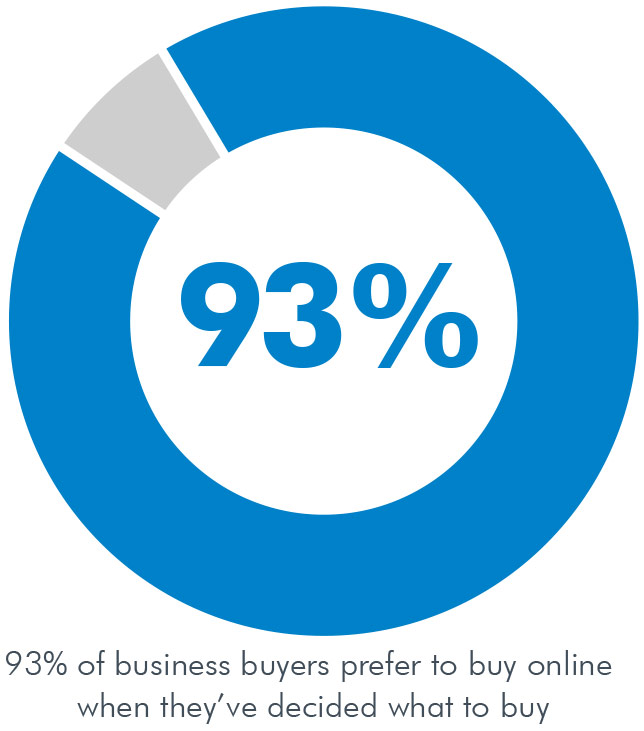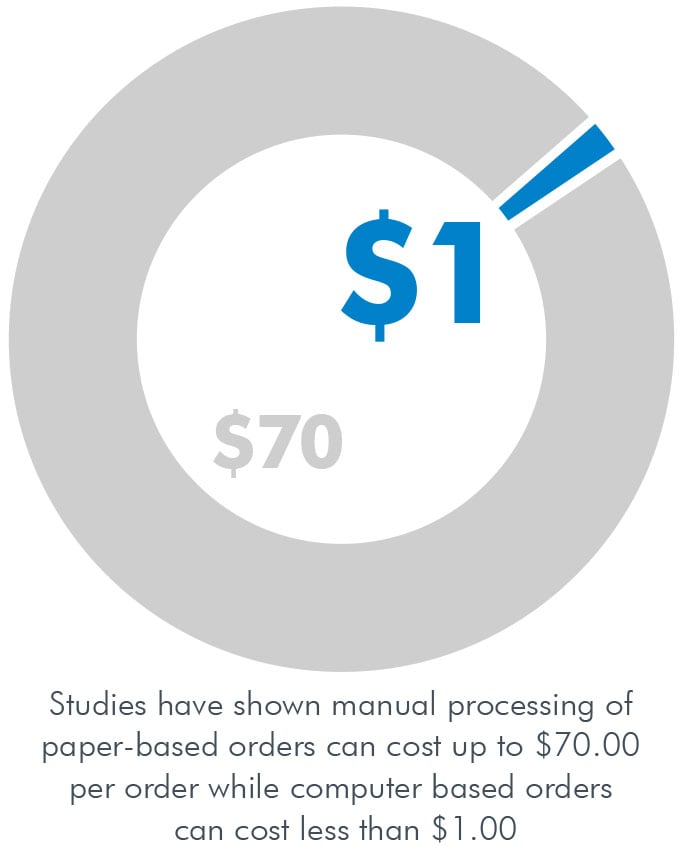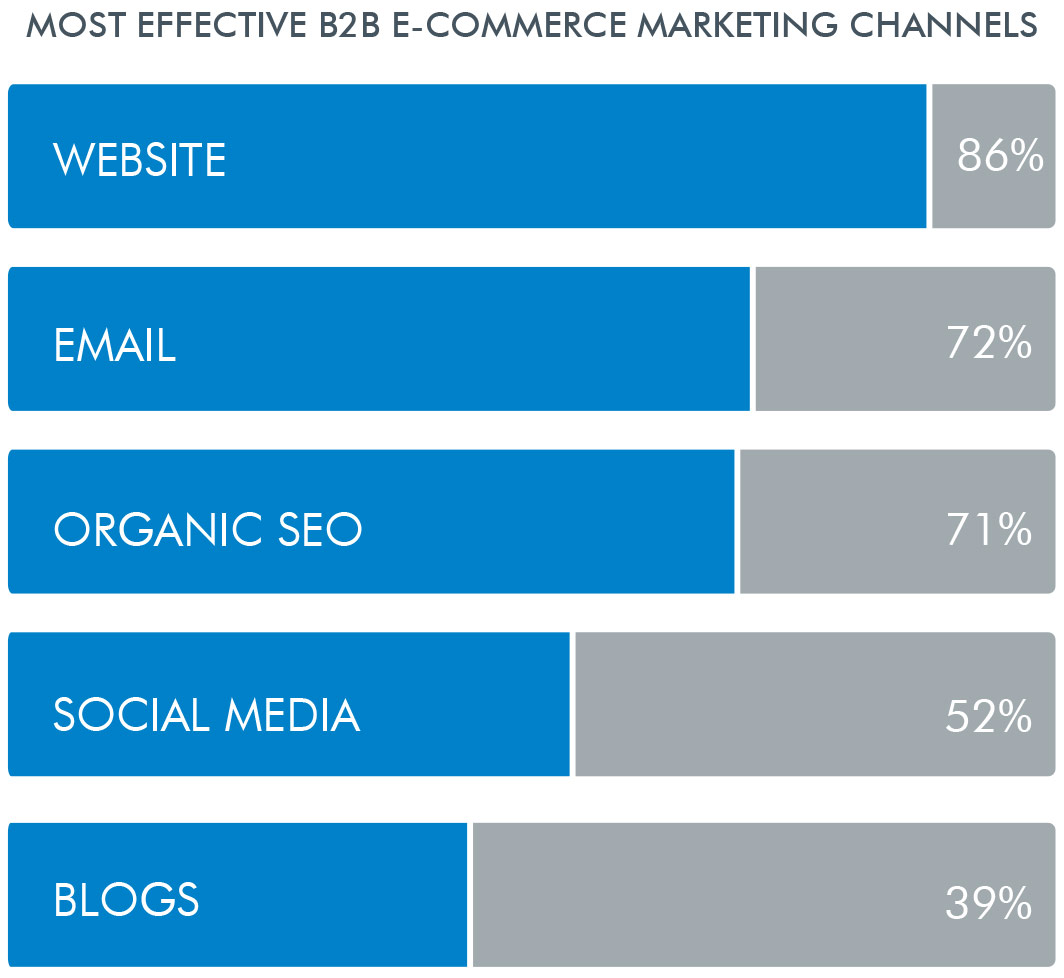These trends are for mid-size B2B companies.
- 1. Merchandising With Digital
- 2. Personalization
- 3. User Experience & CRO
- 4. Marketplaces
- 5. On-Site Search
- 6. Complex Pricing
- 7. Complex Shipping
- 8. Multi-Store
- 9. B2B Ordering Systems
- 10. E-commerce/ERP Integrations
- 11. Punch-Out Systems
- 12. PIM Systems
1.Merchandising your Products with Digital
This is one of the greatest opportunities for B2B companies. Customers want to
search, find, filter, research, prioritize, and replace products during their
purchasing journey. Then, they want to know about the availability, prices,
discounts, shipping, comparisons, reviews, and compatibility of the products,
among other things.
Meanwhile, B2B companies want to build customer loyalty, increase value, upsell
products that are higher quality, more popular, and provide better margins.
Also, during checkout, cross-sell them with companion or complimentary
products, special offers, sales, and product promotions.

2.Personalization
For B2B customers, personalization is very different from B2C. B2B customers want to review their past orders and
then re-order with one click. In many cases, they have their own custom catalogue with special pricing and
discounts. Sometimes they have custom projects with special products and prices that they order from on a continuous
basis. Of course, they also want to create their own wish lists, pay invoices, and manage their profiles.
3.User Experience & Conversion Rate Optimization (CRO)
Experts now agree that a variety of disciplines must be applied and balanced for the site to be successful for both
the customer and company. These include:
- Branding and design
- Information architecture and search
- Usability principles and best practices
- On page optimization for search engines
- Conversion optimization
Attaining success in this multi-disciplinary process has become more challenging as the digital systems have
dramatically increased their functions and services provided.
"B2B customers name the lack of speed in interactions with their suppliers as their number one pain
point"
4.Marketplaces

B2B E-commerce sales through Marketplaces are exploding and it is expected
to be double the size of B2C sales within the next five years. The leaders in this
space are Alibaba, Amazon and eBay. Over 63% of consumers start their
search for a new product on Amazon.
The objective for B2B sellers is to seamlessly list, merchandise and sell their
products through a variety of marketplaces including industry specific ones.
The E-commerce platforms have embraced the challenge of allowing their
customers to effectively manage these platforms from within their offerings.
5.On-Site Search
As sites become larger and more complex customers
continue to migrate to your Search tool, the challenge is
they expect results like Google and Amazon. Potential
customers who are further down the sales funnel tend to
use your search more often as they know what they are
looking for. The new search tools allow for search results
based on your business rules and characteristics.
They are adept at handling multi-language, mobile and
voice searches, promotions, and provide effective statistics
for you to improve your evolving search requirements.
Tracking your on-site search enquiries can provide
valuable insights.

6.Complex Pricing
For some B2B companies this is the most complex task in their digital journey. One client that we work with has a
4 terabyte pricing file!. You need to consider the many variables with pricing:
DIFFERENT TYPES OF PRODUCT
- Simple products
- Configurable products
- Grouped products
- Bundled products
- Virtual & Downloadable products
SEVERAL PRICE TYPES
- Base price
- Regular price
- Multiple special/sale prices
- Quantity discounts
- Configured price
Prices can also be fixed or set in percentages and tied to specific user groups or projects. Good B2B E-commerce
platforms take this complexity into consideration and in some cases deliver the flexibility needed.
7.Complex Shipping
The requirements, complexities and customizations seem to be endless for B2B shipping. A multi-carrier shipping
setup is required to handle the different sizes, weights and volume of the products being shipped. Naturally the
customer would like to know the shipping costs and their options prior to check out.
- We have developed shipping options where the user gets free shipping when filling a truck. When putting
objects in their shopping cart they see a visual display of how full the truck is. This tool dramatically
increased our customers’ average order value.
- We developed another shipping option for a building supplier that allowed their customer to choose a
date and time for delivery and what floor the products were to be delivered to.
8.Multi-Store
If you have more than one store, you’re definitely aware of a range of challenges related to developing and
maintaining
several sites – time, effort and money.
Over 40% of B2B companies are planning to deploy B2C or the new Direct to Consumer websites (D2C) by 2022.
One successful online specialty retailer is releasing 11 different websites with each one structured, designed and
optimized
for their major short tail keywords within their industry.
In addition to multi-store, B2B companies regularly require multi-catalogue, multi-currency, multi-language and
multi-warehouse to be dealt with effectively.
"B2B customers now expect a B2C purchasing experience that
also accommodates the complexities of a B2B sales process"
Gartner Research
9.B2B Ordering Systems
Until recently the E-commerce needs of B2B customers were primarily ignored by the E-commerce software
suppliers. This is not the case today with the major players adding functionality and plugins to address the unique
needs of B2B companies.
The major players in the B2B segment are Adobe/Magento Commerce, and Magento Community, WordPress
WooCommerce, BigCommerce, Amazon Business, Shopify, Salesforce CloudCraze and NetSuite.
10.E-Commerce, ERP & CRM Integrations
Customers are expecting the convenience and speed that digital can deliver. Digital is effective for product
research,
24/7 ordering, repeat orders, and much more.
B2B clients want to have access and manage the account information for their companies. This includes deciding who
has authority to purchase and what are their custom catalogues, price lists, wish lists, shipping, and
payment/billing
information. They also want to have access to their invoices and allow payments to be made online.
Think of how much of your employee’s time will be saved if they do not have to answer these types of enquiries.
11.Punch-Out Systems
Essentially, your customer opens their purchasing system, and your E-commerce system opens in their window.
This allows them to navigate, select products, and purchase within your site. Once they have filled their cart and
hit buy, your E-commerce system sends that information through their purchasing system and out comes your
PO. No more incorrect pricing, discontinued products being ordered, or errors due to re-typing.
"The Amazon Business Punch-Out System presently
supports over 100 purchasing systems"
12.Product Information Management (PIM) Systems
One of the most complex aspects in your digital journey is the proper development and management of product data.
Most expect their ERP to provide the capabilities to effectively manage this arduous task but in most cases they
fall short.
The new PIM systems are powerful tools designed to handle all the data, content and other material needed to market
and
sell your products. They also help ensure that quality data is created for internal use and multi-channel
distribution.
Some of the better E-commerce systems have effective PIM capabilities built in.